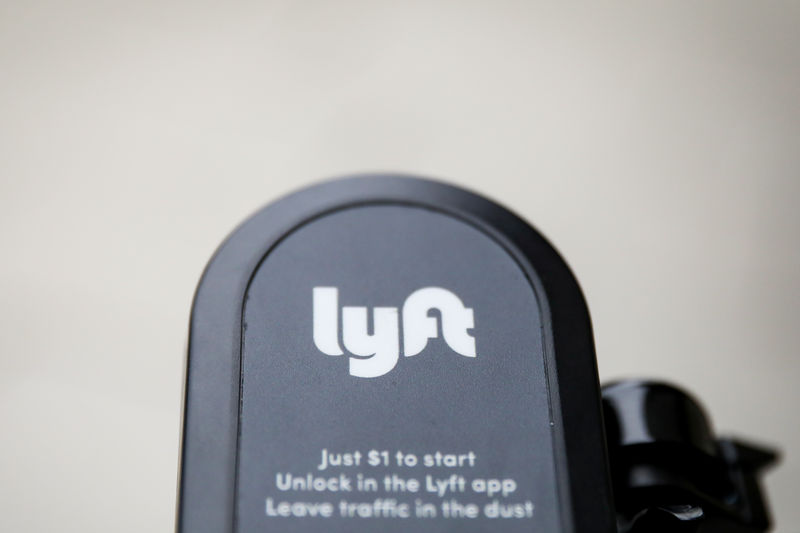Walmart halts H-1B visa offers amid Trump’s $100,000 fee increase - Bloomberg
On Wednesday, JPMorgan has adjusted its outlook on Lyft (NASDAQ:LYFT) shares, setting a new price target of $16, down from the previous target of $19, while maintaining a Neutral rating on the stock. According to InvestingPro data, analyst targets for Lyft currently range from $14 to $26, with the stock showing significant volatility in recent months. The stock has gained over 48% in the past six months despite recent pressures. The firm’s analysts noted that Lyft has shown improved execution over the past year with a significant focus on product innovation and service enhancements for drivers and riders. These efforts have resulted in a 10% year-over-year increase in Active Riders and an Adjusted EBITDA of $113 million, with a 2.6% margin for the fourth quarter. InvestingPro analysis reveals that Lyft’s revenue has grown by 25.4% over the last twelve months, with analysts expecting continued growth this year. For deeper insights into Lyft’s financial health and growth prospects, investors can access the comprehensive Pro Research Report, available exclusively on InvestingPro.
Despite these positive developments, JPMorgan expressed concerns about an intensifying competitive landscape in the rideshare industry, particularly in the latter part of the fourth quarter and into the first quarter. While Lyft maintains a strong gross profit margin of 33.9% and holds more cash than debt on its balance sheet, the competitive pressures are reflected in its market performance. InvestingPro subscribers can access additional insights through exclusive ProTips and detailed financial metrics that help evaluate Lyft’s competitive position. The analysts observed that competition became notably fiercer in the last few weeks of December, a trend that has continued into the first quarter. Lyft has reported that the price-per-mile at the end of January was the lowest it has been in five quarters. This situation contrasts with Uber (NYSE:UBER)’s expectations of only marginal increases in UberX prices in the US for 2025, as insurance cost increases are expected to moderate.
Lyft’s challenges are further compounded by the upcoming shift of the Delta partnership from Lyft to Uber in the second quarter, which is anticipated to ramp up competition and potentially allow Uber to capture a larger market share. JPMorgan analysts also pointed out that the end of the Delta partnership in early April is expected to impact Lyft’s growth, potentially reducing rides growth by 1 percentage point and gross bookings (GBs) by 2 percentage points.
Despite Lyft reaching all-time highs in several metrics, including faster estimated time of arrivals (ETAs) and the highest frequency of riders in five years, the company is likely to face pressure on its results through the first half of 2025. Lyft must find a way to compensate for the loss of the Delta partnership, which raises questions about its ability to achieve mid-teens annual GBs growth through 2027.
In light of these concerns, JPMorgan has revised its estimates for Lyft’s future performance. The firm has decreased its 2025 and 2026 gross bookings forecasts by 2-3%, Adjusted EBITDA predictions by 4%, and free cash flow (FCF) projections by 3%. The new price target of $16 is based on approximately 7.5 times JPMorgan’s estimated 2026 FCF of $675 million. Based on InvestingPro’s Fair Value analysis, Lyft currently appears undervalued, with strong potential for growth as analysts predict profitability this year. The company’s financial health score is rated as "GOOD" by InvestingPro’s comprehensive evaluation system.
In other recent news, Lyft has been the focus of several analyst firms following its latest financial results. Evercore ISI cut its price target for Lyft from $19 to $15, maintaining an ’In Line’ rating. The firm stressed the need for consistent improvements in Lyft’s fundamentals, following a quarterly performance that did not fully meet expectations.
Goldman Sachs maintained a neutral rating on Lyft, keeping its price target at $20. The firm acknowledged progress in Lyft’s operational and financial Key Performance Indicators (KPIs), despite modest Gross Bookings performance. Goldman Sachs expects investor attention to shift towards Lyft’s commentary on pricing.
Truist Securities also revised its price target for Lyft, reducing it from $20 to $17, while maintaining a Hold rating. The firm noted positive developments in customer experience and product innovation, but remains cautious due to competitive dynamics, the advancement of autonomous vehicles, and regulatory changes.
Canaccord Genuity reaffirmed its Buy rating and $22 price target for Lyft, highlighting the success of platform innovations like the Price Lock feature. Despite pricing pressure within the industry, Lyft remains committed to achieving its long-term goals.
Lastly, RBC Capital Markets slightly lowered its estimates for Upwork (NASDAQ:UPWK), reflecting a more tempered growth outlook. These are among the recent developments concerning Lyft and other tech companies.
This article was generated with the support of AI and reviewed by an editor. For more information see our T&C.
